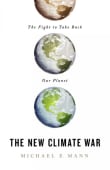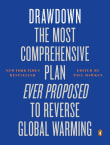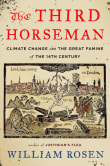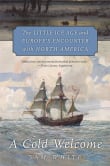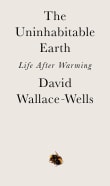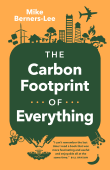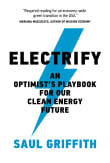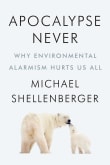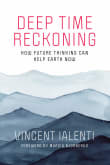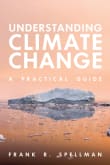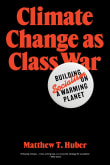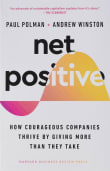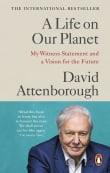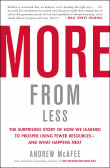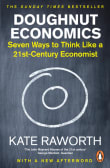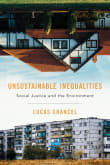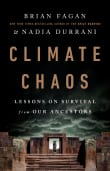How to Avoid a Climate Disaster
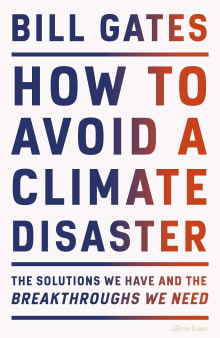
Book description
In this urgent, authoritative book, Bill Gates sets out a wide-ranging, practical - and accessible - plan for how the world can get to zero greenhouse gas emissions in time to avoid a climate catastrophe.
Bill Gates has spent a decade investigating the causes and effects of climate change. With…
Why read it?
9 authors picked How to Avoid a Climate Disaster as one of their favorite books. Why do they recommend it?

As I write this review, hurricane Milton just crashed into Florida and the two presidential candidates are trying their best to avoid talking about climate change. But we cannot ignore it. Global warming and climate change are the defining issues of our generation. We really need books like How to Avoid a Climate Disaster, which provides a thoughtful, factual, understandable, and non-emotional analysis of the problems we face and the solutions we need. I was never a big Bill Gates fan, but he did humanity a service by writing this book. You should read this book. The climate crisis is…

Putting in the numbers is what Gates does in his book. Climate change is real, no question. How to address it is where the controversy comes in. I really like that from the outset, Gates proposes five questions to consider whenever climate change is discussed: what fraction of the annual carbon dioxide emission are you removing? What’s your plan for cement? How much electrical power will be needed, what’s the cost, and how much space will it take up?
But he’s optimistic that zero emissions can be reached. He argues there are many options to explore, including nuclear, and says,…
From Christopher's list on climate change powering the planet in 21st century.

Bill Gates is a philanthropist and environmentalist, and—as I learned from reading his book—he is also a competent physicist with an abundance of common sense. He paints a clear and grim picture of the approaching climate changes, and gives an honest estimate of what it will cost to abandon cheap coal and oil, and halt carbon emissions by a shift to clean energy.
Contrary to the thinking fashionable among environmentalists, he regards nuclear energy as clean. That’s fine by me, but I worry about his wish list for new breakthrough technologies to achieve zero carbon emissions by 2050. Many of…
From Hans' list on the climate-change disaster and how to avoid it.

Gates provides a straightforward, numbers-based account of the scope of climate change, breaks down current carbon emissions by sectors of our society and economy, and dissects the technologies we need to employ and invent to cut global carbon emissions to zero and halt global warming.
This is a must-read, especially for those curious and hopeful about practical solutions to climate change. As a science fiction author, I was inspired by this book’s detailed descriptions of technologies that will likely shape our future.

Bill Gates has managed the impossible task of writing a detailed book on the technological fixes we need across the board to reach net zero greenhouse gas emissions by mid-century, but doing so in plain language that is appropriate for the widest of audiences.
This is key because the green transition will affect everybody’s life and cannot be left in the hands of experts and technocrats. Perhaps my only grievance towards the book is that at times it feels like a long laundry list of green desiderata, without taking time to think about the social, economic, and political implications of…
From Alessio's list on the relationship between the economy and nature.

I must confess that I didn’t start out as a Bill Gates fan. But in the wake of his Microsoft career, his proactive investments in start-up companies that could transform our society for the better started to capture my attention. When I read his book climate solutions, I became convinced of his analytical and entrepreneurial genius. He approaches climate breakdown with the pragmatic optimism of a venture capitalist. One of his most compelling insights are his “green premium” calculations for major sectors, which effectively measure the price gap between current solutions and emerging technologies. This provides a clear indication of…
From Wayne's list on creating a thriving future.

Yes, this is the Bill Gates, and judging by audience response at Amazon.com, with 9,781 ratings as of late July 2022, his book is at the top of the climate-change heap. While Matthew T. Huber believes that the uber-rich will have to be educated into a working-class point of view to take part in a worldwide climate-changing strategy, Bill Gates, who is about as oligarchic as they come (that is, one of the richest people on the Planet) joined with Knopf, one of publishing’s leading (and richest) voices, and Amazon.com, the biggest book dealer on the Planet, to argue the…
From Bruce's list on the climate change debate to avoid a catastrophe.

I don’t know about you, but I am exhausted by all of the negative news coverage about climate change as a disaster. I was particularly excited to see Gates write a book focused on solutions and actions we can take to avoid a climate disaster. Real solutions to climate change are complex and require global cooperation, a large team of experts, and political influence.
Up until this book I was disappointed in Gates' take on renewable energy. Gates closely matched Vaclav Smil’s dated point of view on renewables, assuming they are an expensive technology that will never significantly influence our…
From Joseph's list on understand future potential of renewable energy.

Bill Gates has a unique, global perspective on far more than climate change. He has consulted experts in many relevant fields, as well as drawing on his unrivaled experience of innovation. This is a book that is, above all, about electrification and the rapidly falling costs of new power sources. It is not political discourse but is valuable for lay readers.
From Brian's list on climate change today and in the past.
Want books like How to Avoid a Climate Disaster?
Our community of 12,000+ authors has personally recommended 100 books like How to Avoid a Climate Disaster.
